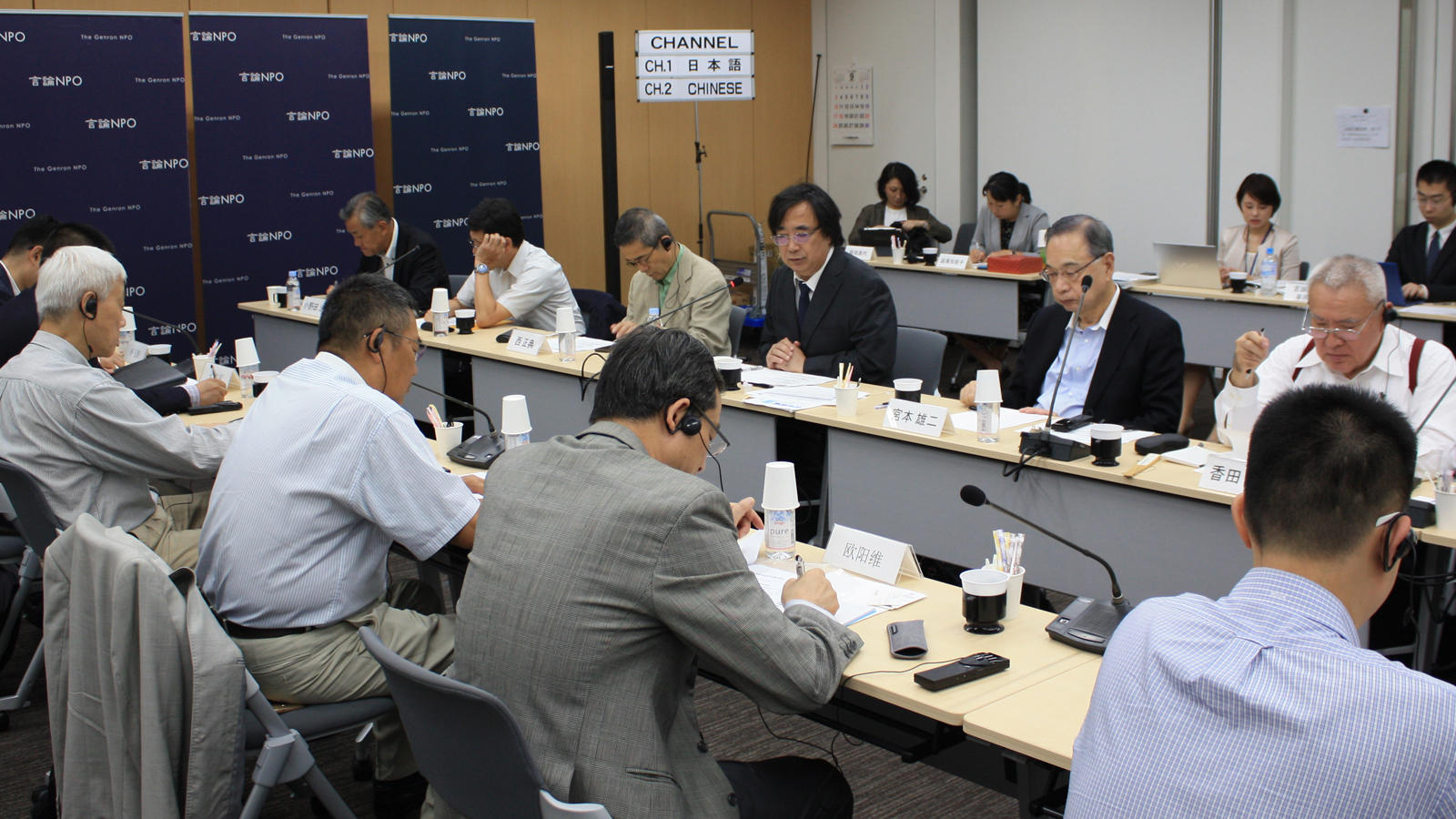
The Genron NPO, which has been preparing to conduct dialogue that will help establish peace in Northeast Asia, launched its first discussions Sept. 10 in Tokyo with experts from a think tank of the Chinese People's Liberation Army (PLA). Conversations with leading experts from the United States are set for late October.
During the first half of the Japan-China security dialogue, 12 experts from the two countries discussed the concept of Japan and China joining efforts to ensure peace in the region. In the second half of the session, the participants engaged in a lively debate about what the two countries can do to address North Korea's nuclear threat.
Japanese experts kicked off the discussion by bringing up Shinzo Abe's remarks during a meeting with Chinese President Xi Jinping in November 2014, where Japan's prime minister said friction will occur if Japan and China cannot share a common goal and vision for the future. They explained that while the Chinese media did not cover the remarks, Prime Minister Abe had discussed: 1) how to deepen mutual understanding between the citizens of both countries; 2) boosting economic interaction; 3) cooperating on the East China Sea issue; and 4) how to improve the environment for East Asia security. The Chinese experts responded that they had heard nothing about these remarks, and said misconceptions between citizens of both countries increase when there are not enough channels of communication and that the gap in perception grows when information is not properly conveyed.
The Japanese experts said that security during the Cold War was relatively stable as the United States and Soviet Union understood each other, but it will be difficult for Japan and China to build a security framework without a trusting relationship. It will be necessary to overcome the differences in the way Japan and China's PLA think about security, and mutual understanding is critical for that to occur, they said.
In the context of multipolarity, the Chinese experts asked whether there was a difference in understanding between China and Japan over the U.S.-Japan alliance. They said that it was important to clarify the differences by seeking the "larger commonality" and allowing room for "minor differences" as a means to remove the "obstacles of the heart." The Chinese experts also urged their Japanese counterparts to lend a sympathetic ear to the Chinese understanding of one's own country and claims, such as in the context of international and maritime laws.
In the second half of the session, the participants discussed the issue of North Korea's nuclear and ballistic missile development. The Japanese experts said that many Japanese are questioning whether China is serious about imposing sanctions on North Korea, to which the Chinese experts responded that while Beijing and Pyongyang are allies, the leaders and the environment are different now, hinting that North Korea no longer listens to China. Asked if China was willing to acknowledge North Korea as a nuclear power, the Chinese experts said that was unacceptable as it would lead to the destruction of the order maintained by the Nuclear Non-proliferation Treaty (NPT). Furthermore, experts from both countries were unable to determine the true intent behind Russia's seemingly amicable approach to North Korea.
Last, the Chinese experts talked about how Japan and China could cooperate on mitigating North Korea's nuclear threat, and realizing peace in the Northeast Asia region. They stressed the importance of trying to understand what North Korea is demanding and even provide, if necessary, what it needs in order to bring Pyongyang to the negotiating table. In response, the Japanese experts said the nature of the threat on the Korean Peninsula appears to be changing drastically as Prime Minister Abe says, and under such circumstances, Japan and China should work together to manage the threat.
In closing, Genron NPO President Yasushi Kudo spoke highly of the fact that experts from both Japan and China agreed on the need to deepen various strategic discussions while sharing the will to resolve the North Korean crisis. Referring to the fact that various misunderstandings exist due to the lack of communication between Japan and China, Kudo said that active dialogue even at the private-sector level was necessary and called for the continuation of dialogue to establish a peaceful order in the Northeast Asia region.

Post a comment